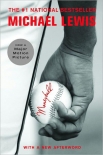Moneyball by Lewis, Michael (books to read in your 30s TXT) 📗

Book online «Moneyball by Lewis, Michael (books to read in your 30s TXT) 📗». Author Lewis, Michael
the [Elias Bureau] launched their own competitor, the main purposes of which were to:
a) make money
b) steal all of my ideas
c) make as many disparaging comments as possible about me
So that was a lot of fun.
The effect on James of being ignored by the people who stood to benefit the most from his work was to distance himself even further from those people. In his earlier writings James often tried to explain what he was up to, in such a way that it might invite baseball professionals to pay attention. His instinct, at first, was to assume that the people who actually managed baseball teams had some good reason for what they were doing, even when what they were doing struck him as foolish. A few years into his career, he clearly decided that baseball professionals would benefit from being smacked on the head by a two-by-four. In his commentary about the Cleveland Indians that year, for instance, he wrote that “during the winter I was told something about the Indians’ front office that really shocked me. They’re dumb. You know, not bright, slow.” He went on to explain how he at first refused to accept stupidity as an explanation for the Indians’ ineptitude because “there is so much hope invested in a ball club, there are so many people who care about the fortunes even of the Indians and who are honestly hurt, if only in passing (but we are all only passing) that it just seems inconceivable that these fortunes could be entrusted to someone who is incapable of taking care of them. Are children allowed to play catch with the family jewels?…I have a correspondent who is an avid Indians fan, a professor of math at a fine university. He understands what needs to be done. Why can’t he be given the job?”
Seven years into his literary career, in the 1984 Baseball Abstract, James formally gave up any hope that baseball insiders would be reasonable. “When I started writing I thought if I proved X was a stupid thing to do that people would stop doing X,” he said. “I was wrong.” He began his opening essay of 1984, ominously, by pointing out the boom in sports journalism that promised to take you “inside the game.” The media had become hell-bent on giving the superficial impression of allowing the fan a glimpse of the heart of every matter. Just to glance at the titles on TV shows and magazine articles you might think that there was nothing left inside to uncover.
It was all a lie. “What has really happened,” James wrote, “is that the walls between the public and the participants of sports are growing higher and higher and thicker and darker, and the media is developing a sense of desperation about the whole thing.” What was true about baseball was true about other spheres of American public life and, to James, the only sensible approach was to drop the pretense and embrace one’s status as an outsider. “This is outside baseball,” he wrote. “This is a book about what baseball looks like if you step back from it and study it intensely and minutely, but from a distance.” It wasn’t that it was better to be an outsider; it was necessary. “Since we are outsiders,” he wrote, “since the players are going to put up walls to keep us out here, let us use our position as outsiders to what advantage we can.”
From here until James quit writing his Abstract four years later he might as well have declared open season on insiders. He became somewhat slower to concede baseball professionals might have a point. One sentence serves as a fair summary of James’s attitude toward the inside: “I think, really, that this is one reason that so many intelligent people drift away from baseball (when they come of age), that if you care about it at all you have to realize, as soon as you acquire a taste for independent thought, that a great portion of the sport’s traditional knowledge is ridiculous hokum.”
As baseball’s leading analyst, James slid between two stools. Baseball insiders thought of him as some weird kind of journalist who had no real business with them. Baseball outsiders thought of him as a statistician who knew technical things about baseball. A number cruncher. A propeller head. Even after he had become known for his books—even after he changed the way many readers thought not only about baseball but about other things too—James never got himself thought of as a “writer.”* That was a pity. A number cruncher is precisely what James was not. His work tested many hypotheses about baseball directly against hard data—and sometimes did violence to the laws of statistics. But it also tested, less intentionally, a hypothesis about literature: if you write well enough about a single subject, even a subject seemingly as trivial as baseball statistics, you needn’t write about anything else.
When the Library of America published its wonderful anthology of America’s great baseball writing in 2001, it included pieces by Robert Frost and John Updike and other fancy literary types, none of whom ever said anything as interesting about baseball as Bill James, and yet, inexplicably, nothing at all by James.
The trouble was that baseball readers were not ready for what he had to say. The people who found him worth reading struck him, increasingly, as ridiculous. His skeptical detachment from the world around him helped him to become a writer but it left him ill-suited to be a best-selling one. “I





Comments (0)